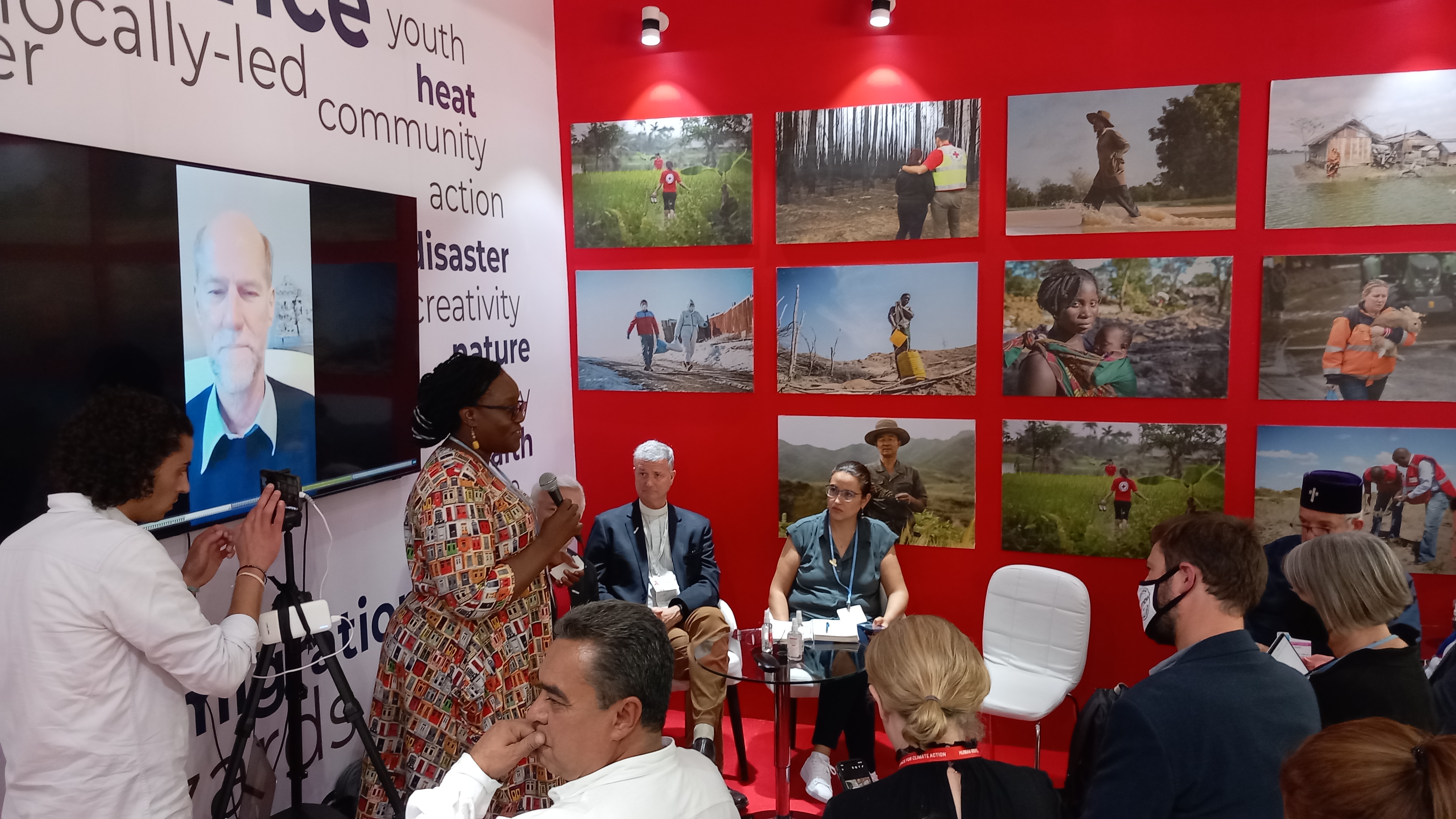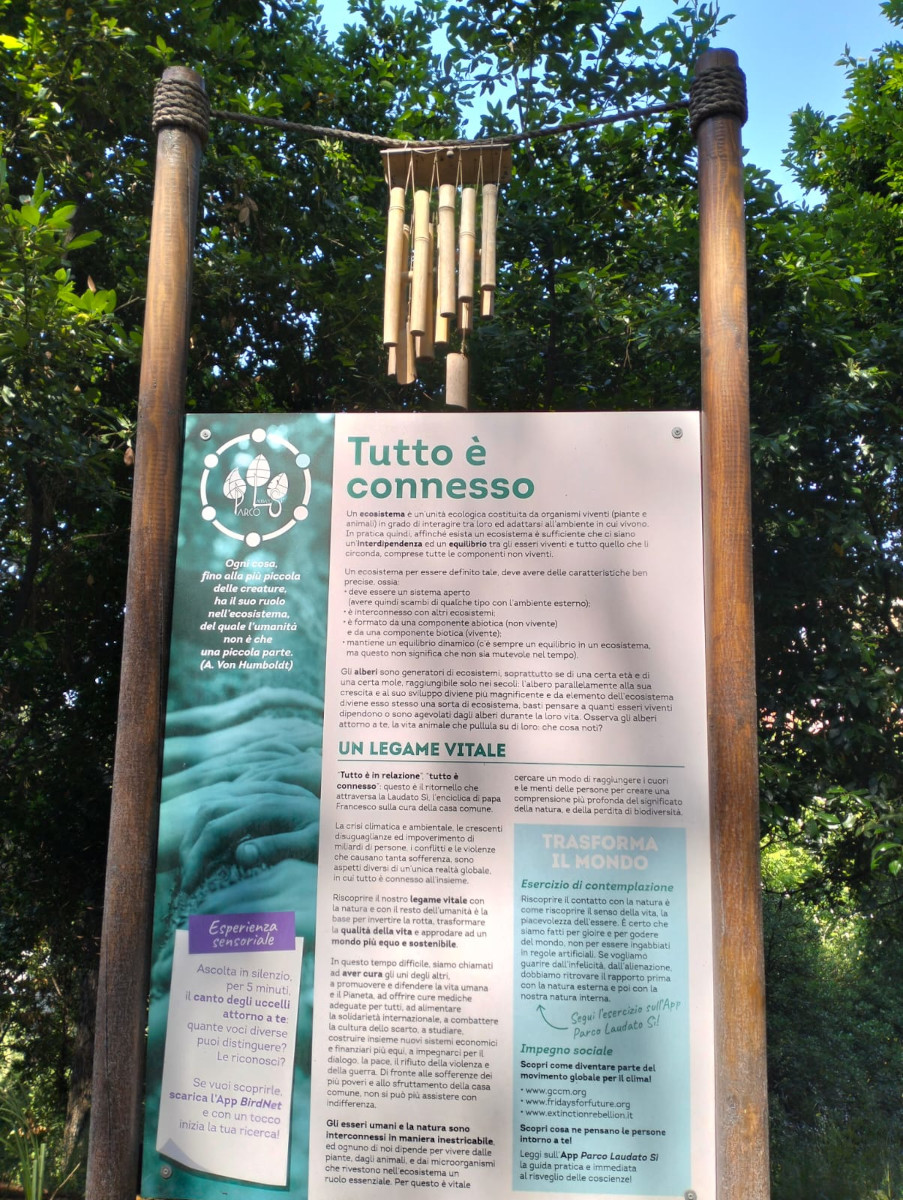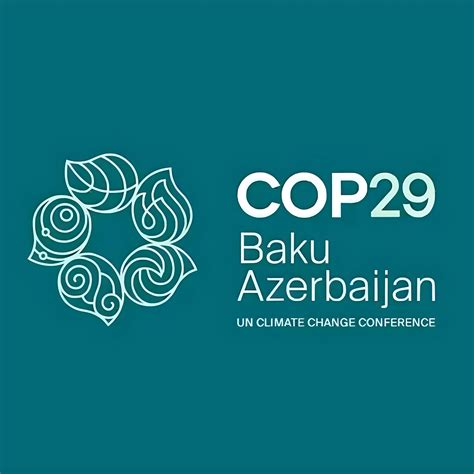The Role of Faiths at COP27
VIVAT’s delegation at COP27 in Sharm-el-Sheikh participated again in the activities of the Interfaith Liaison Committee (ILC), which was established as a special group under the United Nations Framework Convention on Climate Change (UNFCCC) during the 2013 Conference of the Parties (COP) to support the informal gathering of faith-based organizations (FBOs) actively engaged at the UNFCCC.
The ILC works as a platform for FBOs to facilitate climate dialogue and action. The ILC meets during the annual UN climate negotiations and regularly online to collaborate on faith advocacy for climate ambition, embracing all the pillars of the UNFCCC and of the Paris Agreement: mitigation of carbon emissions, adaptation to climate change, loss and damage due to extreme and slow onset weather events, and climate finance.
The perspective of ILC is that of a global interfaith call to consider the moral voices of the world about climate change, with a special focus on protecting the most vulnerable. Faiths contribute a vision of humanity and creation as an interdependent, harmonious whole, with life-giving relationships. It also conveys people’s ideals, hearts and life, appealing to the conscience of negotiators, to inspires a change of attitude, to rise to the occasion and respond adequately to the urgency of real climate solutions.
What brings people of different faiths together is a shared, deep sense of moral duty to care for suffering people and ecosystems. 84% of the world population profess a faith, so a dialogue of faiths is very important. It gives the opportunity to speak with one voice to affirm values and principles to guide climate action. At COP27 we met members of the Elijah Board of World Religious Leaders, who presented the 10 Spiritual Principles for Climate Repentance. It is a call to return to a correct vision of the creation, the creator, and the harmonious relationship of humanity with creation. Such principles focus on
= The relationship between God and the world: Creation is not our possession and it is, in significant ways, permeated by God’s presence and being, manifesting the divine agency and reality. Within creation, and between humans and other parts of creation, as well as among religious communities, there is interdependence. All are part of a greater whole wherein each element both receives and gives influence, impact, love, and growth.
= Humanity and its responsibilities: the distinctive task of humanity is to nurture and serve this interdependent life-giving, and so to resist the temptation to exploitation, waste, and harm. The human person has capacities that are conducive to the realization of this vision, as well as forces that are destructive. There is an inherent relationship between the human person (within) and nature and objective reality (without). Thoughts, speech and action have the capacity to bring harm or to heal. Based on this understanding of the human person and his/her role in creation, the processes of growth, transformation, return and repentance are fundamental to human existence.
= A spiritually meaningful life: empowered by mind, reason and spiritual understanding, we adopt a mindful and attentive view of the natural world. The life of attentive, intelligent love is embodied in compassion: in openness to the pain and vulnerability of the world. Care for the other is expressed in love and compassion as fundamental spiritual principles.
The interfaith movement also provides a network of prayer and meditation meant to support spiritually all those committed to caring for the world and countering climate change. ILC holds webinars and events to raise critical awareness of climate change, pass on key messages and information from the best available science and advocacy.
At the beginning of COP27, ILC organized a Talanoa dialogue among participants from very different faith backgrounds and life experience. That is a Pacific concept transported to COP24 climate talks in Katowice (Poland) when the Fijian presidency of the 2017 UN climate talks proposed to bring together governments and civil society through the unconventional platform of the Talanoa Dialogue. The basic idea is that empathy is one of the most effective tools, so back then the initiative aimed to bring together governments and civil society and hold a conversation in an inclusive, receptive space. It is a traditional method of solving differences in the Pacific.
The Talanoa Dialogue in Katowice sought to break the climate deadlock by drawing participants closer together through sharing their stories of climate change. Governments, but also civil society, NGOs, businesses, cities and others have been invited to submit stories responding to three questions: Where are we now? How do we want to go? How do we get there?
This is precisely what the COP negotiations are missing, as we experienced it both in Glasgow and Sharm-el-Sheikh. Despite the large presence of civil society organizations and indigenous peoples, the overall impression is that negotiators are so much immersed in their technical discussions and political leverage that they do not hear people’s stories and demands with compassion. Personally, I had the clear impression that there are two parallel worlds that do not meet at the COPs.
After the experience in Katowice, ILC endeavours to keep alive this approach to climate decisions and actions, at least among people gathering in the name of faiths. The exercise we had in Sharm-el-Sheik led us to a prayerful listening to the perspectives from various vantage points, to experiences of life and to God’s invitations, in search for a common response. I experienced a profound encounter and connection of humanity in God’s presence.
It emerged a deep concern about the severe state our Mother Earth is in. Scientific information and statements from political leaders have not succeeded in diverting us from a very dangerous trajectory. Life on earth, as we know it, is in danger. To act against short-termism and economic growth models that do not include the health of the ecosystems we need new narratives. Our different faiths have narratives that lead us to protect and to love our neighbour. We need faith communities to underpin the great transition we must undertake: a just transition for climate justice.
Faiths are able to address the root causes of problems which go deeper than finance, technology or politics. Faiths provide the much needed focus away from condemnation towards lovingly finding solutions, towards non-violence in our awareness and action towards the Earth. Faith leaders must therefore recognize the seriousness and provide factual and scientific knowledge about climate change as well as methods to build spiritual capacity for resilience.
We must acknowledge the role of faiths in building spiritual and practical resilience in the face of loss and damage. At the same time, we as people of faith, can practice ecological readings of our scriptures in studies and in education. We also look into traditions in our faiths that support a more sustainable life and try to learn from each other.
Out of the Talanoa dialogue and shared discernment, ILC has submitted to the COP Presidency a document presenting the interfaith position concerning various aspects of the climate negotiations, such as: Human Rights, climate change and climate induced migrations; Loss & Damage; young people participation on climate negotiations; the centrality of the wisdom and rights of Indigenous Peoples; gender inclusive climate action; finance for climate action and adaptation; mitigation of emissions and just energy transition.
A particular course of action embraced by the group is the call to raise faith voices for Ecocide Law. There are so many threats to ecosystems today. The western anthropocentric view has brought us to a stage where we are not attentive to the ecosystems we are depending on. Therefore, there is a need for an international law that protects ecosystems from Ecocide. Ecocide means “unlawful or wanton acts committed with knowledge that there is a substantial likelihood of severe and either widespread or long-term damage to the environment being caused by those acts.” The campaign aims at introducing the crime of Ecocide under the Rome Statute of the International Criminal Court: promoting climate justice and integrity of Creation requires also legally binding international juridical instruments.
Alberto Parise MCCJ – VIVAT International’s delegate at COP27




